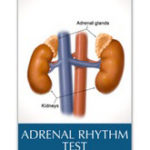$259.00
Description

A telomere test is a blood test that measures the length of telomeres, the protective structures located at the tips of chromosomes. The test is intended to reveal a person’s biological age, the age a person shares with most people of similar physiology.
Whereas chronological age measures the number of years since birth, biological age measures changes in the physical structures of the body (such as organs and bones), sensory perception, and motor skills. A person’s chronological age and biological age aren’t always the same. Telomeres are considered a good indication of a person’s biological age.
Most chromosomes have telomeres that normally shorten as a person gets older. By analyzing telomere length individuals may gain insights into their health, lifespan and susceptibility to diseases, such as cancer and Alzheimer’s.
What a Telomere Test Provides:
Since individuals do not age at the same rate, telomapping establishes important molecular biomarkers that our age management doctors can use to anticipate the onset of certain age-related diseases and disabilities.
For example, a 70-year-old man with relatively long telomeres may be considered to have a young biological age and, therefore, have better health and longer to live than a 70-year-old man with shorter telomeres.
Conversely, a 35-year-old woman with relatively short telomeres may be considered to have a biological age of 45, meaning she is aging faster than normal and has the telomere length of an average 45-year-old. She may also be at higher risk for cancer, heart disease and early death.
Generally speaking, in a group of people of the same chronological age, those with longer telomeres are more likely to outlive those with shorter telomeres.
Benefits of Telomere Testing
![]()
Discover How You are Truly Aging
![]()
Learn More About Your Life Expectancy
![]()
Get the Necessary Motivation to Live a Healthier Lifestyle
The primary benefit of a telomere test may be the information it provides to an individual regarding their biological age. This information may enable a person to make adjustments to his/her lifestyle that can lead to better health and a longer life.
Telomeres are known to respond well to a healthy lifestyle. A person who maintains a good low-sugar, nutrient rich diet, exercises regularly and is free from constant heavy stress is less likely to endure accelerated telomere shortening.
In contrast, people who, for example, care full-time for elderly or sick relatives (such as a daughter caring alone for a mother with Alzheimer’s and a brother with autism) carry a tremendous burden of stress and are more likely to have shorter telomeres.
In particular, mother’s who care for sick children—enduring long-periods of high emotional stress—are known to have shorter telomeres.
Why I Love This Test:
As a clinician, I love to see data that indicates someone’s true genetic health status. This test is a key indicator of how rapidly one ages relative to a normal population. This test also provides data so we know what to do therapeutically to decrease the aging process and optimize the performance of one’s youthful genes.










Comments